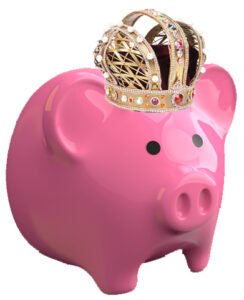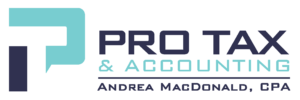Bookkeeping, Accounting, and Taxes
Frequently Asked Questions (FAQs)
Pro Tax & Accounting is a leading expert in business bookkeeping and accounting. We can handle tax returns for both businesses and individuals, and we are here to relieve your stress! However, we also know that financial decision-making can be complicated. Managing your assets and filing your taxes is exhausting work, and hiring an accountant may seem intimidating. You probably have some questions about the work we do and the resources we provide. That’s why we’ve created this handy list of Bookkeeping, Accounting, and Tax Frequently Asked Questions (FAQs).
Frequently Asked Questions about Business Bookkeeping & Accounting

Business Bookkeeping: FAQs
What is the difference between a bookkeeper and an accountant?
Bookkeepers are responsible for recording and organizing financial data. Accountants, meanwhile, are responsible for interpreting that data. A thorough bookkeeper will make sure your books look good. However, a licensed accountant can help you make financial decisions about your business. In other words, bookkeeping lays the foundation for accounting.
What records and metrics should I be tracking for my business?
You need to keep detailed records of business-related expenses and assets. For example, if you run a restaurant, you should also regularly review performance metrics. This way, you can make sure you don’t have any unexpected costs or problems.
What do accounts receivable include?
Do your clients owe your business money for services or goods you’ve already provided? Your accounts receivable should include that money. Suppose, for example, you delivered a product to a customer but they haven’t paid for it yet. That invoice would then be part of your accounts receivable. In the same vein, the customer will have an account payable until they submit their payment to you.
Business Accounting: FAQs
How should I separate my business finances from my personal finances?
It’s important to avoid mixing your business and personal finances, especially if the IRS comes knocking. Consider operating separate checking accounts and accounting systems for your business and personal needs. You can also set up a home office dedicated exclusively to your business. A business credit card is another option!
What documents does Pro Tax & Accounting need from me to best help my business?
We want to get a clear picture of your business’s financial status. To do that, we’ll need as many source documents as you can provide. These can range from bank and credit card statements to your accounts payable and receivable.
Should I invest in some accounting software?
Even if you’re organized, accounting software can be useful. Manual bookkeeping and accounting are prone to human error. However, there is accounting software like QuickBooks out there. QuickBooks can help you track business expenses and generate financial reports much more quickly. That’s why Pro Tax & Accounting offers QuickBooks Consulting Services. Give us a call today to learn more about how accounting software like QuickBooks can help your business.
If you want more answers to your Frequently Asked Questions, you can email us!

FAQs
Frequently Asked Questions about Individual & Business Taxes
Individual Tax Returns: FAQs
What receipts do I need to bring for my personal taxes?
Even if you don’t own a business, there are many types of receipts you should keep for tax purposes. You should keep receipts of medical expenses, for example, as well as for childcare. Depending on your circumstances, there may be numerous receipts that will help you get the best deductions. Call Pro Tax & Accounting today for more information.
If I work from home, what deductions do I qualify for?
If you work from home, you could get some sizable deductions. Do you have a home office for exclusively business purposes? If so, you might be able to get a deduction for home-related expenses like property taxes. Travel or meal expenses might also qualify for deductions if you incur these expenses as part of your job. Don’t hesitate to reach out to Pro Tax & Accounting to learn more!
What is the difference between a tax deduction and a tax credit?
Tax deductions reduce the amount of taxable income you have. For example, suppose you make $50,000 per year, which places you in the 22% tax bracket. A standard tax deduction of $12,000 would reduce your taxable income to $38,000. As a result, you would only be taxed on that amount. You might use itemized deductions instead, but the effect is the same. Your taxable income would decrease. On the flip side, a tax credit reduces the amount of money you owe in taxes. So, if you get a tax credit of $1,000, you will pay the IRS $1,000 less.
If you want more answers to your Frequently Asked Questions, you can email us!
Business Taxes: FAQs
What are Business Taxes?
The IRS lists five different types of business taxes, as indicated below. Not all business owners will have to pay every type of business tax, though! The business taxes you pay will depend on the type of business you run.
Income Tax:
Since you operate a business, you will need to file an income tax return on behalf of your business. In this case, the business’ “income” is the profit it has accrued throughout the year. As a business owner, you must pay taxes on that profit. You can subtract any deductible expenses first, though! The level at which the tax liability rests and how income tax is assessed depends upon the type of business you operate (sole proprietorship, single member LLC, partnership, S Corporation, or C Corporation).
Estimated Tax:
Employees have money withheld from each of their paychecks for tax purposes. But if you’re a business owner, you’ll have to pay regular income taxes throughout the year. To do this, you’ll file an estimated tax form at quarterly intervals. This form will account for both business and personal income, as well as self-employment taxes.
Self-Employment Tax:
Do you earn more than $400 per year by working for yourself? If so, then you may have to pay a self-employment tax. This tax goes toward your social security and Medicare coverage.
Employment Taxes:
If you have employees, you’ll need to pay certain employment taxes. These include Social Security and Medicare taxes, half of which you withhold from your employees’ paychecks and the other half of which you pay as the employer. These taxes also include federal unemployment taxes, which you must pay yourself.
Excise Tax:
If you professionally gamble or sell products like fuel, cigarettes, or alcohol, you may have to pay excise taxes.
Additionally, some states may require business owners to pay sales tax, property tax, litter tax, tire tax, gross receipts tax, franchise taxes or dividend tax. Again, the taxes you owe will depend on the type of business you own and the state of your business license.
Does the IRS offer any late payment options?
If you can’t pay your business taxes by the appropriate due date, you’ll incur some penalties and fees. However, the IRS does offer a variety of payment options. First, make sure to pay as much as you can by the due date. Then, you may be able to request a 120-day extension. If you get this extension, you’ll still have to pay the necessary interest. You can also try to set up an installment plan to pay the rest of your taxes, or pay a fee to use a credit card.
If I choose not to use the standard mileage rate for my car expenses, what receipts do I need to keep?
Are you thinking about using the Actual Expenses method to calculate your vehicle deduction? If so, there are a couple of things you should keep in mind. Firstly, the Standard Mileage rate increased from 54.5 cents to 58 cents in 2019. This means that your Standard Mileage deduction will likely be higher this year than it was last year! But perhaps using the Actual Expenses method will provide you with an even higher deduction. If that is the case, then the second thing you need to remember is that the Actual Expenses method requires extensive documentation. If you choose to go this route, you need to keep receipts for anything that goes into the maintenance of your vehicle. This could include gas, oil, repairs, auto insurance, lease payments, and tire purchases.
So why hire a professional?
As you can see, accounting and taxes have a lot of moving parts. Balancing your books and keeping organized records can be exhausting work. Here at Pro Tax & Accounting, we want to help by reducing the stress and time it would take you to do all of this work! If you hire one of our expert accountants, we can relieve some of your stress. We will save you significant time and money with our services. Our commitment to accuracy can also protect you in the event of an audit. So give us a call today! Whether you’re a business owner or an individual, we would be happy to help you out.

At Pro Tax & Accounting, we keep you from breaking the bank!
Pro Tax & Accounting is your go-to resource for businesses bookkeeping, accounting services, payroll, QuickBooks Consulting, and tax services. President and owner, Andrea MacDonald, CPA, is a Certified Public Accountant. Andrea and her team have the education, knowledge, and experience and work with businesses throughout the Hampton Roads Virginia cities of Chesapeake, Norfolk, Virginia Beach, Suffolk, Newport News, and Hampton, north into Williamsburg, and throughout the mid-Atlantic region. And thanks to technology, Pro Tax & Accounting can work with clients anywhere in the world!
Call today and free up the time you need to run your business, and leave the bookkeeping and accounting up to the experts!


